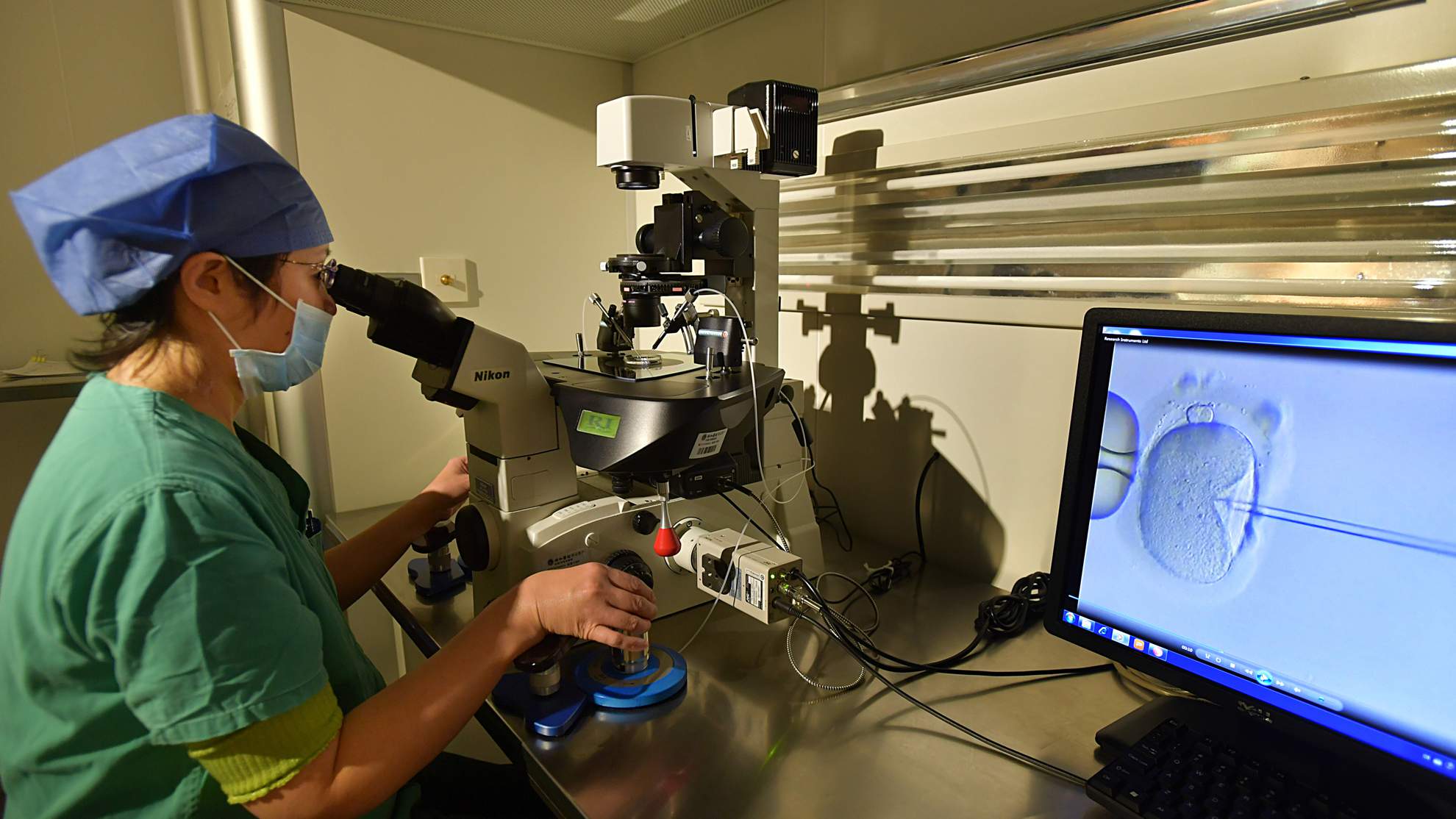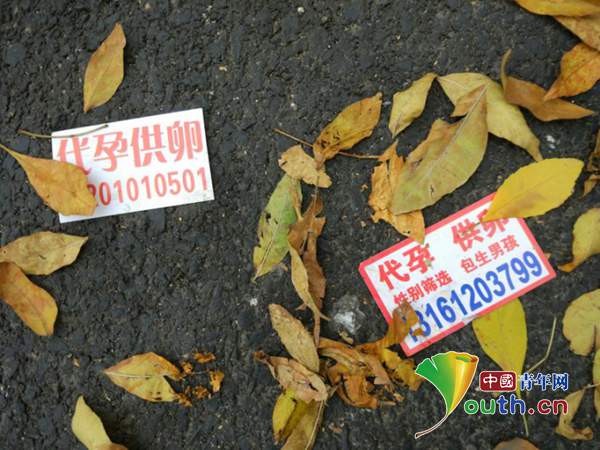
Business
17:29, 20-Dec-2016
Illegal trading of human eggs surges in China
Updated
10:26, 28-Jun-2018

Illegal trade in human eggs is booming in China, with university students the favored donors. Eggs can be sold for tens of thousands of US dollars.
"Egg collection" agencies require the potential sellers to provide their personal information, including facial features, educational background and personal habits, according to an undercover report from youth.cn, a news website founded by China’s Communist Youth League Central Committee.
The report says that for students from China’s top universities, the brokers can offer a price of over 8,600 US dollars per egg.

Advertisements about "egg donation" or "surrogacy" on the streets around the Center for Reproductive Medicine of the Peking University Third Hospital. /Photo from Youth.cn
Advertisements about "egg donation" or "surrogacy" on the streets around the Center for Reproductive Medicine of the Peking University Third Hospital. /Photo from Youth.cn
Currently, China’s National Health and Family Planning Commission forbids any kind of commercialized egg donation and supply, and only women undergoing in vitro fertilization are allowed to legally donate extra eggs.
However, due to the high profits, the lucrative business continues to grow in the shadows.
According to a separate undercover report from Chengdu Television Station, some brokers in Chengdu charge customers between 20,000 and 36,000 US dollars for an egg. And a "guaranteed pregnancy" service is also offered, for which the price soars to over 122,000 US dollars.
Meanwhile, the brokers have developed an industrial line to arrange the whole process from the sellers to recipients, including physical checks and surgery.

"Egg collection" agencies arrange meetings between an egg seller and her buyer. /CFP Photo
"Egg collection" agencies arrange meetings between an egg seller and her buyer. /CFP Photo
More than 40 million people in China have been diagnosed as infertile, and about three million women needed assisted reproductive technologies to have biological children in 2015. However, few can get help through official channels, statistics show.
Besides the market demand, experts say the slack law against “egg collection” agencies also aggravates the situation.
“Current regulations only stipulate penalties for medical institutions that are involved in the egg donation business, but do not stipulate punishments for other individuals or agencies involved in the trade,” said Zhu Lieyu, a deputy of China’s National People's Congress and also director of Guoding Law Office.

SITEMAP
Copyright © 2018 CGTN. Beijing ICP prepared NO.16065310-3
Copyright © 2018 CGTN. Beijing ICP prepared NO.16065310-3